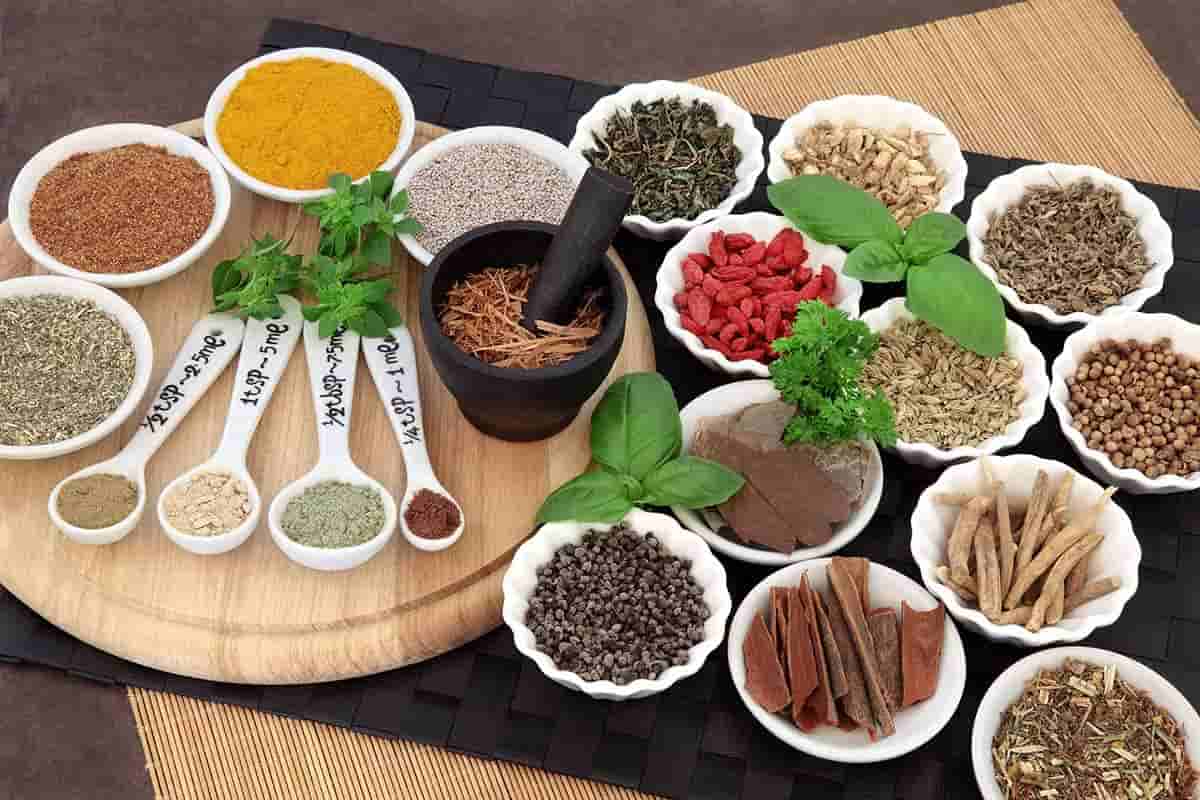There are many ways to tackle nutrition concepts, but one new way of tackling nutrition is the holistic approach. This approach takes all considerations, including where you get your nutrients from and where your nutrition gets its nutrition.
Many things go into holistic nutrition, and it can be quite a bit of information, but here is the complete guide to holistic nutrition. Here is everything that you need to know about this type of nutrition and what you should eat with this approach.
Article Contents
What Is Holistic Nutrition?
So what is holistic nutrition exactly? The word holistic means you take into consideration everything rather than one area of a subject. With nutrition, that means looking at the entirety of the person and the nutrients entering that person’s body.
Holistic nutrition looks at your whole life rather than just the meal itself. It takes into consideration the following:
- Where you eat your food.
- When you eat your food.
- What food you ate.
- Where your food came from.
- How your food was prepared.
- How your food was grown.
- What fed your food before it came to you.
- Your attitude towards food.
- Throw away any negative ideas of food.
This holistic approach also considers any cultural requirements for your food and includes specific diets and meals preparations. It takes into understanding that we are all different in our lifestyles, and we need different approaches to receive our nutrients.
What Types Of Food Can You Eat On A Holistic Diet?
When you are on a holistic diet, it is not more of a diet but rather a lifestyle change. Holistic nutrition focuses more on intuitive eating. This means that the nutritionist will look at nutrition as a whole and try to rid of any negativity regarding food.
Food is meant to be enjoyed instead of considered bad, as the stigma of fad diets or counting calories. Here are some ideas of intuitive eating:
- Disregards diet culture and diet fads.
- Eating is a pleasure rather than something to be guilty about.
- Respects the individual rather than a one-size-fits-all.
- Works on changing habits than policing your meals.
- Sees food more as fuel rather than a filler.
- Helps you connect with your body’s hunger cues and signs.
With a holistic diet, you will first look at what you are eating and how you feel when eating. Most of the time, you will start off journaling your food intake. This journaling doesn’t continue forever. It is more to identify your habits and how you should change them to better yourself and your body.
Here are some notes and questions you can write down while you are discovering your eating habits:
- When you eat.
- What did you eat?
- How hungry were you before eating?
- What was your mood?
- How much did you eat?
- How full were you afterward?
- Did you like it?
- What did you feel after eating?
- When did you feel hungry again?
- Any physical responses to food?
- Any other notes you may have to add.
Once you identify your habits, you can start changing any habits and eating food as fuel rather than a response mechanism to stress or other emotions. You will start to understand what your body needs.
It is all about being a mindful eater rather than exactly what you eat (although this is just as important), but you have to change the habits in small steps rather than big goals. Here are a few tips to be a mindful eater and better your habits:
- Make small goals.
- Don’t eat while on the phone.
- Don’t eat while watching television.
- Cook the food yourself as much as possible.
- Pay attention to the taste, smell, and texture of the food.
- Look at all the flavors and why it tastes well with other foods.
- Pay mind to your mood during your meal.
Eating healthy is only one aspect of trying to look at your nutrition holistically. Your diet includes what you put into your body and listening to your body and what you feel when you are eating.
How Much Does A Holistic Nutritionist Make A Year?
Holistic Nutritionists is an emerging profession as holistic nutrition has become a new way of approaching food and eating as a whole rather than looking at only what is on your plate or the caloric intake.
Because it does take quite a lengthy, in-depth course to become one, you will find the average salary for a Holistic Nutritionist is around $55,000. The lower ten percent get about $34,000, and the higher ten percent get about $78,000 annually.
The highest paying nutritionists work in these fields:
- Home health services
- Insurance providers
- Grantmaking and giving services
- Federal executive government
- Office administrative services.
How Do I get Certified In Holistic Nutrition?
You can be a certified Nutritionist in many different ways depending on the level you want to be involved in someone’s nutritional journey. You will need to decide at what level you would like to be certified as:
- Certificate in Holistic Nutrition Consulting
- Bachelor of Science in Holistic Nutrition
- Graduate Certificate in Holistic Nutrition
- Master of Science in Holistic Nutrition
- Associate Of Applied Science In Complementary Alternative Medicine with Holistic Nutrition Specialization
- Diploma in Holistic Health Practice
- Master of Science in Health and Wellness
These degrees vary in length of years to study for and how much studying or work you will get this certificate.
Certificate In Holistic Nutrition Consulting
If you are looking to get certified quickly, you can choose this option. Now, this doesn’t make you a complete holistic nutritionist but a consultant. You won’t have the authority to do some things as a holistic nutritionist with a Master’s degree or a Bachelor’s degree.
It is only 16 credit hours, and you can do this program online. You will complete many basic nutrition classes along with a few other credited classes. Some of the goals outlined for this program include:
- Discuss current holistic nutrition information.
- Educate others about holistic nutrition.
- Use tools to improve health and well-being.
- Learn the steps to start a business.
- Implement the principles of nutrition and nutritional biochemistry.
- Coach others about nutrition.
Bachelor of Science In Holistic Nutrition
To get this degree, it is a little more extensive. It is a four-year program, but you can complete this sooner depending on if you sign up for more hours each semester. You have to complete 120 credit hours of courses. Here is a breakdown of those credit hours:
- 6 Englich Composition Credits
- 24 General Education Credits
- 30 Science Credits
- 30 Major Credits
- 30 Elective and Specialized Credits
When choosing this route, you will have to complete hours of internship. This means that you will have to complete about 500 hours. You will be well versed in holistic nutrition: the mind, body, and soul. You will be able to help your patients thoroughly.
Graduate Certificate In Holistic Nutrition
Luckily, after you get your Bachelor’s degree in Holistic Nutrition, it is only 12 credit hours to get your graduate certification. When you take this program, you are preparing for the Master’s program for Holistic Nutrition.
Master Of Science In Holistic Nutrition
After completing the graduate certificate, you can continue your path to get your Master’s of Science in Holistic Nutrition. You can give holistic nutrition and physical health recommendations to your patients with 36 more credit hours.
When you do this program, you will find yourself learning about advanced holistic nutrition and learn how to combine coaching with new holistic nutrition. You will also be allowed to take the exam: the national board certification examination of the National Association of Nutrition.
Associate Of Applied Science
Although this is an applied science degree that should take you around two years, you will find that this isn’t quite holistic nutrition. This focuses on alternative medicines that are studied throughout the holistic nutrition programs but don’t cover the entirety of nutrition.
If you aren’t looking for another graduate or undergraduate program, this may be a great way to expand holistic medicines options. It focuses on the natural healing of aromatherapy and is only 60 credit hours to complete. You only need a prerequisite of a high school diploma or something equivalent to it.
Diploma In Holistic Health Practice
If you are looking for something a little quicker than a Master’s program or you just want to add to your health care services, this is the certification for you. You will find that this route is approved by the National Association of Nutrition Professionals.
There is an emphasis on aromatherapy, so that you will be taking quite a few classes within this general area. You will also be a part of many of the same courses within the other programs, so you will find that you have the same basic knowledge of holistic nutrition.
Master Of Science In Health And Wellness
Some colleges don’t offer a Master’s in Holistic Nutrition. If this is the case for a college, you would like to go to, and an alternative is a Master of Science in Health and Wellness. Many colleges and universities provide this type of degree, so it is more readily available for you.
With this program, you have more options for electives that can be used towards your degrees, unlike the other programs. Although this is approved by the National Association of Nutrition Professionals, this degree doesn’t allow you to take the CHES exam.
This degree is considered a part of the integrative health area, and you will need to complete 36 credit hours after getting a Bachelor’s degree. You will study holistic nutrition but will not dive into this study area like you would if you chose the other degrees.
How Long Does It Take To Become A Holistic Nutritionist?
You can become a holistic nutritionist anywhere from four years to ten years. The length depends on which program you choose and if you choose to be a full-time or part-time student. If you take on fewer hours within the program you choose, it will take twice as long.
If you want to be something a little sooner than the four years, you may think about becoming a holistic nutrition consultant. It is only 16 credit hours, and you can get this done in one or two semesters compared to a four-year program.
Outro
Holistic nutrition is a growing concept that takes everything in mind when you try to better yourself and what you take into your body. It is a great way to figure out what is best for you. You will find that with this approach, you won’t feel like you’re missing something.




